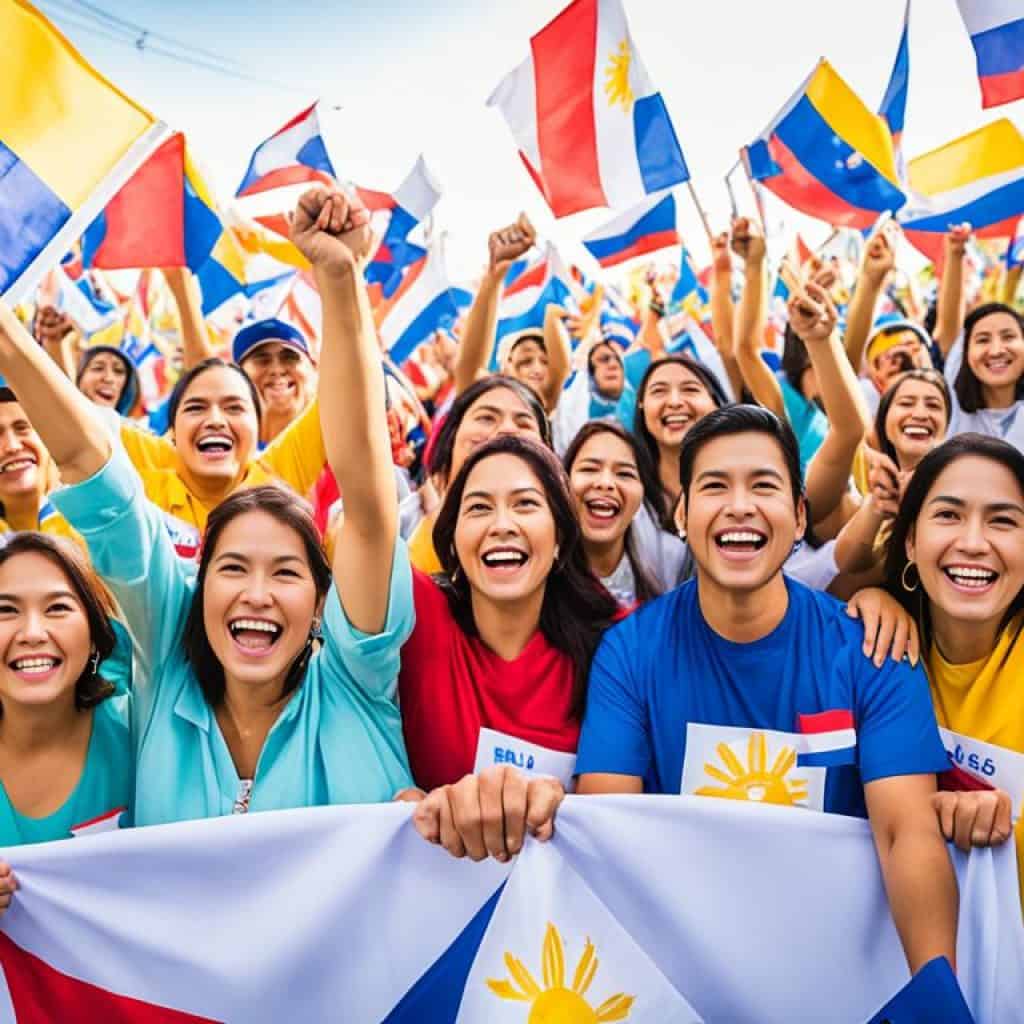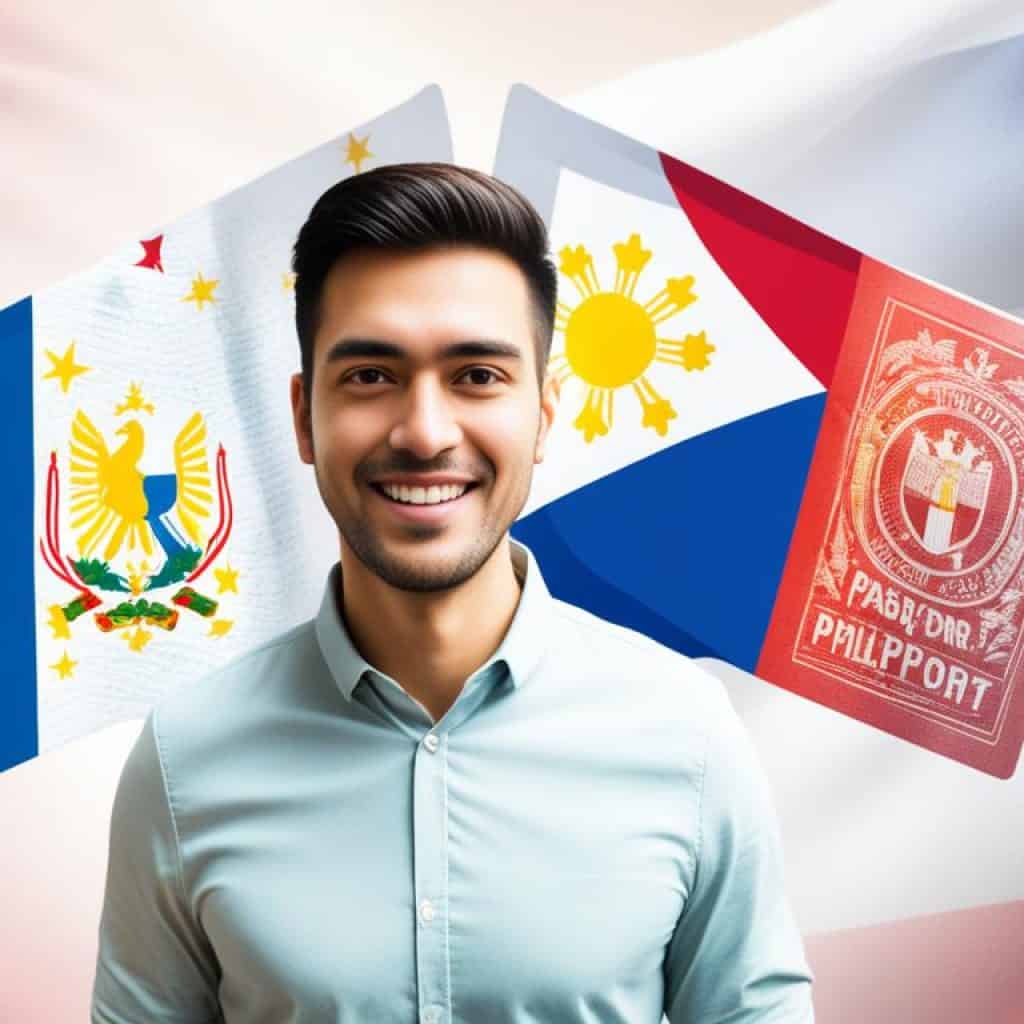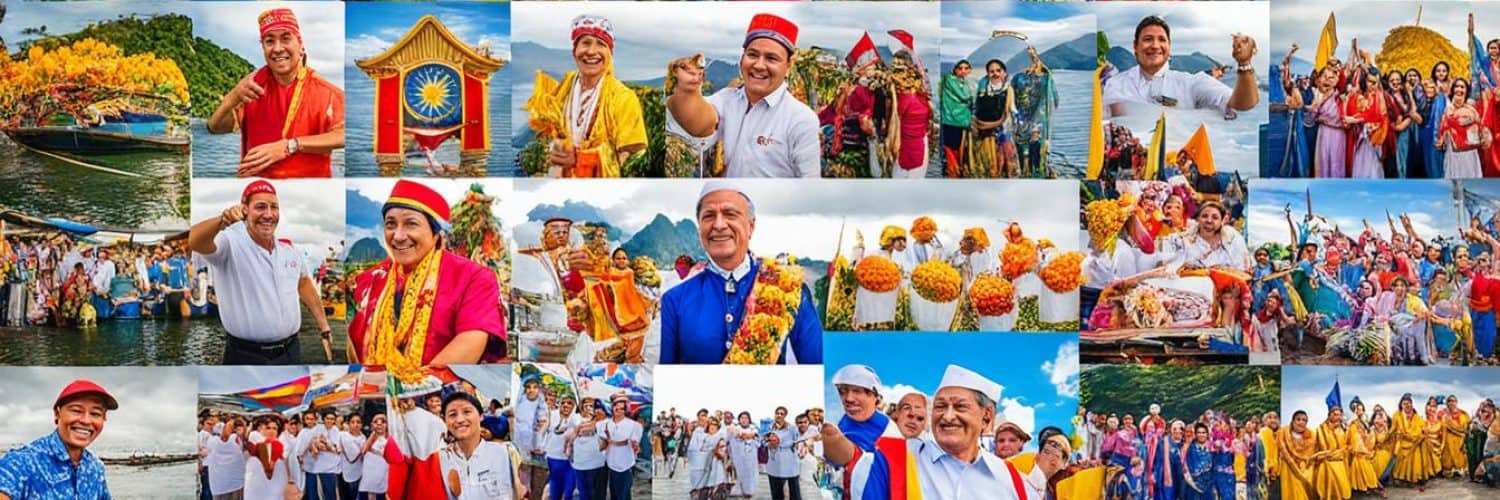Are you curious about the citizens of the Philippines? Have you ever wondered who qualifies as a Filipino citizen? The concept of citizenship is complex, and understanding the criteria for Filipino nationality can be intriguing. In this article, we will explore the qualifications for being a Filipino citizen, including the criteria for natural-born citizenship, the process of dual citizenship, and the rights and privileges enjoyed by Filipino citizens. Get ready to delve into the fascinating world of Filipino nationality!
Key Takeaways:
- Natural-born Filipino citizens are individuals who are citizens of the Philippines from birth without having to perform any act to acquire or perfect their Philippine citizenship.
- The Dual Citizenship Law enables former natural-born Filipinos who have become citizens of another country to retain or reacquire their Philippine citizenship.
- To be eligible for Philippine citizenship by birth, individuals must have at least one parent who is a Filipino citizen at the time of their birth.
- Filipino citizens, whether natural-born or dual citizens, enjoy full civil, economic, and political rights in the Philippines.
- Under the principle of derivative citizenship, unmarried minor children of former natural-born Filipinos who have reacquired their Philippine citizenship are also considered Filipino citizens.
Eligibility for Philippine citizenship by birth
If an individual is born on or after January 17, 1973, at least one parent should be a Filipino citizen at the time of their birth. For those born before January 17, 1973, the father should be a Filipino citizen, or if the father is not a Filipino citizen, the mother should be a Filipino citizen and the applicant should have elected Philippine citizenship upon reaching the age of majority. These individuals are considered natural-born Filipino citizens and do not need to go through any additional process to acquire citizenship.
Dual citizenship in the Philippines
Under the Dual Citizenship Law, former natural-born Filipinos who have become citizens of another country can retain or reacquire their Philippine citizenship. This provides them with the opportunity to fully embrace their Filipino heritage and enjoy all the rights and privileges as Filipino citizens.
Reacquiring Philippine citizenship involves taking an oath of allegiance to the Republic of the Philippines before a Philippine Consular Officer. This signifies the individual’s commitment to being a loyal Filipino citizen.
After taking the oath, individuals can then apply for a Philippine passport, which grants them the benefits of international travel under the protection and support of the Philippine government.
Dual citizens are afforded equal treatment and enjoy the same civil, economic, and political rights as any other Filipino citizen. They can actively participate in the economic development of the country, engage in business and commerce, and exercise their political rights through voting and running for public office.
“Dual citizenship enables individuals to preserve their ties to the Philippines while also embracing the opportunities and experiences offered by their adopted countries. It is a testament to the diverse and interconnected world we live in, where individuals can truly be global citizens while remaining rooted in their Filipino identity.”
Furthermore, dual citizenship allows individuals to maintain a strong connection to their Filipino roots. They can freely participate in cultural, social, and community activities in the Philippines, fostering a sense of belonging and contributing to the nation’s rich heritage.
Retaining or reacquiring Philippine citizenship through dual citizenship is a meaningful choice for former natural-born Filipinos who wish to maintain their ties to the Philippines and fully embrace their Filipino heritage.
Retention and reacquisition process
Retaining or reacquiring Philippine citizenship involves a straightforward process that requires applicants to appear in person at the Philippine Embassy or Consulate in their country of residence. Here is a step-by-step guide:
- Make an appointment: Applicants need to schedule an appointment with the Philippine Embassy or Consulate to initiate the retention or reacquisition process.
- Prepare necessary documents: Applicants must gather important documents, including their birth certificate, passports, and marriage certificate (if applicable). These documents are crucial for verifying their identity and citizenship status.
- Present naturalization certificate: For individuals seeking reacquisition, a naturalization certificate issued by the foreign government must be presented to prove their acquisition of foreign citizenship.
- Pay the processing fee: A nominal processing fee is required, which covers the administrative costs associated with the retention or reacquisition process.
- Verify identity and citizenship: The Consular Officer reviews the application and may request additional documents to validate the applicant’s identity and citizenship.
- Oath of allegiance: Once the application is approved, the applicant is required to take an oath of allegiance to the Republic of the Philippines, affirming their commitment to the country.
By following these steps, individuals can retain or reacquire their Philippine citizenship, enabling them to enjoy the benefits and privileges of dual citizenship.
Rights and privileges of Filipino citizens
Filipino citizens, whether natural-born or those who have reacquired their citizenship, possess a range of rights and privileges that affirm their status as vital members of the Philippine community. These rights empower and protect individuals, ensuring their active participation in civil society, the economy, and the political landscape.
Civil Rights
Filipino citizens have the right to travel with a Philippine passport, granting them access to countries around the world. This passport serves as a symbol of identity and opens opportunities for exploration, education, and global interaction.
Moreover, Filipino citizens have the privilege of owning real property in the Philippines. Whether it be land, houses, or commercial establishments, citizens can acquire and invest in properties, securing their place within the country.
Economic Rights
As Filipino citizens, individuals can engage in business and commerce, fostering entrepreneurship and economic growth. They have the freedom to establish and operate their own businesses, contributing to job creation and sustainable development.
Additionally, Filipino citizens can practice their professions, subject to the necessary licenses and permits required by regulatory bodies. This allows citizens to utilize their skills and expertise in various fields, further enhancing the nation’s workforce.
Political Rights
A fundamental aspect of Filipino citizenship is the right to participate in the democratic process. Citizens have the privilege of voting in Philippine national elections, allowing them to exercise their voice and contribute to the selection of leaders who will shape the country’s future.
Dual citizens, who hold both Philippine citizenship and the citizenship of another country, have the unique opportunity to vote overseas. This ensures that their perspectives and interests are represented, regardless of their current place of residence.
“The rights and privileges bestowed upon Filipino citizens foster a sense of belonging, identity, and active engagement, enabling individuals to truly shape the future of the Philippines.”

The rights and privileges bestowed upon Filipino citizens foster a sense of belonging, identity, and active engagement, enabling individuals to truly shape the future of the Philippines.
Derivative citizenship for minor children
Under the principle of derivative citizenship, unmarried minor children below the age of eighteen of former natural-born Filipinos who have reacquired their citizenship are also considered Filipino citizens. These children are included in the parent’s application for retention or reacquisition of Philippine citizenship.
They may be deemed Filipino citizens if they are listed in the parent’s application and the required fees are paid. It is important to note that a child who is born outside the Philippines to at least one Filipino parent is already considered a dual Filipino citizen from birth.
| List of Requirements for Derivative Citizenship: |
|---|
| 1. Birth certificate of the child |
| 2. Parent’s application for retention/reacquisition of Philippine citizenship |
| 3. Payment of the required fees |
Constitutional basis for Philippine citizenship
The conditions for Philippine nationality are outlined in the 1987 Constitution of the Philippines and the 1939 Revised Naturalization Law. These laws establish the framework for determining Filipino citizenship and provide guidelines for individuals to acquire or retain their Philippine nationality.
Birth to a Filipino Parent
According to the Constitution of the Philippines, any person born to at least one Filipino parent automatically receives Philippine citizenship at birth. This provision ensures that individuals with Filipino parentage have a right to their national identity and are recognized as Filipino citizens from the moment they are born.
Naturalization for Foreign Nationals
The 1939 Revised Naturalization Law allows foreign nationals to naturalize as Philippine citizens. However, they must meet certain requirements to qualify for citizenship. These requirements include a minimum residence period in the Philippines, ownership of real estate in the country, proficiency in the Filipino language, and a demonstration of good character.
“The Constitution of the Philippines guarantees the right to citizenship for individuals with Filipino parentage, while the Revised Naturalization Law provides a pathway for foreign nationals to become Philippine citizens through a rigorous process of naturalization.”
The Importance of the Constitution
The Constitution of the Philippines serves as the fundamental legal document that governs the nation’s citizenship and nationality laws. It ensures that the criteria for Philippine nationality are clearly defined and adhered to, promoting fairness, equal rights, and opportunities for all individuals seeking citizenship in the country.
By upholding the Constitution’s provisions on citizenship, the Philippines maintains a strong sense of national identity and enables individuals to fully participate in the country’s social, economic, and political life as Filipino citizens.
Understanding the constitutional basis for Philippine citizenship provides clarity and guidance for individuals seeking to establish their nationality or explore the rights and privileges associated with being a Filipino citizen.
Spanish rule and American conquest
During the Spanish colonization of the Philippines, Spanish nationality law governed the colony. However, it was not until 1889, when the Civil Code of Spain took effect, that the Philippines had clear nationality legislation. According to this law, anyone born in the Spanish territory, including the Philippines, or born overseas to a Spanish parent was automatically considered a Spanish subject at birth.
“Under this law, any person born in the Spanish territory, including the Philippines, or born overseas to a Spanish parent was automatically a Spanish subject at birth.”
When the Philippines came under United States control in 1898, the determination of the future citizenship of native residents fell under the authority of the U.S. Congress.

| Spanish Rule | American Conquest |
|---|---|
| Spanish nationality law applied | U.S. Congress determined citizenship |
| Anyone born in Spanish territory or to a Spanish parent was a Spanish subject at birth | Future citizenship of native residents determined by U.S. Congress |
United States territory and non-citizen U.S. nationality
During the early 20th century, the Philippines was under the territorial rule of the United States. As a result, Philippine citizens at that time held a unique status of being non-citizen U.S. nationals. While they enjoyed certain rights and protections from the U.S. federal government, they were excluded from political participation in the United States.
“The Philippines will be governed under a civil government by the United States” – William Howard Taft
As non-citizen U.S. nationals, Philippine citizens had certain advantages. They were generally exempt from immigration restrictions when entering the United States and had the freedom to travel and reside within U.S. territories without the need for additional visas or permits. However, it is important to note that they were ineligible to vote in U.S. elections and did not have a direct pathway to full U.S. citizenship unless they served in the U.S. Armed Forces.
To put it simply, Philippine citizens during this period enjoyed a unique legal relationship with the United States, holding a non-citizen U.S. nationality while maintaining their Philippine citizenship.
Benefits of Non-Citizen U.S. Nationality for Philippine Citizens
While non-citizen U.S. nationality had its limitations, it also offered certain advantages to Philippine citizens. These benefits included:
- Exemption from immigration restrictions when traveling to and from the United States
- Ability to freely reside and work in U.S. territories
- Access to some rights and protections under U.S. laws
These advantages provided Philippine citizens with greater mobility and opportunities in their interactions with the United States.
Comparison of Non-Citizen U.S. Nationality and Full U.S. Citizenship
While non-citizen U.S. nationality granted certain privileges, it did not provide the same level of rights and benefits as full U.S. citizenship. Non-citizen U.S. nationals were excluded from political participation, meaning they were unable to vote or hold public office in the United States. Additionally, they did not have access to some government services and programs.
It is worth noting that non-citizen U.S. nationals who desired full U.S. citizenship had the option to pursue naturalization. However, this process required meeting specific eligibility criteria and completing the necessary application procedures.
| Non-Citizen U.S. Nationality | Full U.S. Citizenship |
|---|---|
| Exemption from immigration restrictions | Exemption from immigration restrictions |
| Freedom to travel within U.S. territories | Freedom to travel within U.S. territories and internationally |
| Access to some rights and protections under U.S. laws | Access to all rights and protections as a U.S. citizen |
| Ineligible to vote in U.S. elections | Eligible to vote in U.S. elections |
As shown in the table above, full U.S. citizenship conferred additional rights, including the ability to participate fully in U.S. democratic processes.
Birthright citizenship in the Philippines
The concept of birthright citizenship in the Philippines emerged during the American rule, influenced by prevailing practices in the United States. Unlike the previous Spanish rule, where citizenship was determined by the nationality of the parents, birthright citizenship in the Philippines granted automatic Philippine citizenship to any individual born in the country, regardless of their parents’ nationalities.
This policy aimed to ensure inclusivity and recognize the inherent connection between individuals and the place of their birth. It enabled children of diverse backgrounds to share in the rights and privileges afforded to Philippine citizens.
By establishing birthright citizenship, the Philippines demonstrated a commitment to fostering a sense of national identity and unity among its citizens. This principle allows individuals to fully participate in the social, political, and economic life of the Philippines.
Birthright citizenship has played a vital role in building a diverse and inclusive society, reflecting the rich cultural heritage of the Filipino people. Regardless of their parents’ nationalities, those born in the Philippines have the opportunity to contribute to the nation’s growth and development.
Dual Citizenship under RA 9225
Republic Act 9225, also known as the Citizenship Retention and Reacquisition Act of 2003, provides former natural-born Filipinos the opportunity to retain or reacquire their Filipino citizenship. This means that individuals can enjoy the privileges of dual citizenship, holding both Philippine citizenship and the citizenship of another country.
As dual citizens, individuals have the flexibility to travel with a Philippine passport and benefit from the numerous rights and privileges that come with being a Filipino citizen. They can own property in the Philippines, engage in business and commerce, and participate in Philippine elections, among other things.
Being a dual citizen provides a unique and valuable connection to both their Filipino heritage and their adopted country. It allows individuals to fully embrace their roots while enjoying the benefits of their other citizenship.

Benefits of Dual Citizenship under RA 9225
By obtaining dual citizenship under RA 9225, individuals can experience the following benefits:
- Travel: Holders of Philippine passports can freely travel to the Philippines without the need for a visa. This allows dual citizens to easily visit and explore their home country.
- Property Ownership: Dual citizens can own and acquire real estate properties in the Philippines, enabling them to invest in the local market or establish a permanent residence.
- Business and Employment: Dual citizens have the right to engage in business and commerce in the Philippines. They can establish their own businesses or seek employment opportunities without any restrictions.
- Political Participation: Dual citizens have the option to participate in Philippine elections by registering as voters. They can help shape the political landscape and exercise their democratic rights in the country.
Application Process for Dual Citizenship under RA 9225
To apply for dual citizenship under RA 9225, individuals need to follow the prescribed application process:
- Complete the Dual Citizenship Application form.
- Submit the application form along with the required documents, such as birth certificates, marriage certificates (if applicable), naturalization certificates from the foreign government, and current foreign passports.
- Pay the processing fee.
- Appear in person at the Philippine Embassy or Consulate in their country of residence.
- Take an oath of allegiance to the Republic of the Philippines.
Once the application is evaluated and approved, individuals will be recognized as dual citizens of the Philippines and can enjoy the benefits and privileges associated with it.
Derivative Citizenship for Minor Children under RA 9225
Under RA 9225, the unmarried minor children of individuals who have retained or reacquired their Philippine citizenship are also considered dual citizens. These children automatically acquire Filipino citizenship along with their parent. They too can enjoy the benefits of dual citizenship, including the right to travel with a Philippine passport and the ability to own property in the Philippines.
It is important to note that dual citizenship offers numerous advantages and opportunities for individuals to strengthen their ties to the Philippines while maintaining their foreign citizenship. It allows them to fully embrace their dual identity and enjoy the privileges that come with being a Filipino citizen.
Application process for Dual Citizenship under RA 9225
To apply for dual citizenship under the Republic Act 9225, also known as the Dual Citizenship Law, individuals must follow a straightforward application process. This allows former natural-born Filipinos who have become citizens of another country to retain or reacquire their Philippine citizenship. Here are the steps to apply for dual citizenship:
- Complete the Dual Citizenship Application form.
- Submit the application form, along with the required supporting documents, to the Philippine Embassy or Consulate in your country of residence.
- The supporting documents may include the following:
- Birth certificate
- Marriage certificate (if applicable)
- Naturalization certificate from the foreign government
- Current foreign passport
It is important to ensure that all the necessary documents are provided accurately and legibly to avoid any delays in the application process. Following these steps will help you successfully apply for dual citizenship under RA 9225 and retain or reacquire your Philippine citizenship.
Applying for dual citizenship offers numerous benefits, such as the ability to own property in the Philippines, travel with a Philippine passport, and participate in Philippine elections. It is a significant step for individuals who wish to strengthen their ties to the Philippines while still enjoying the privileges of their foreign citizenship.
Derivative citizenship for minor children under RA 9225
Under Republic Act 9225, also known as the Dual Citizenship Law, unmarried minor children of individuals who have retained or reacquired their Philippine citizenship are also considered dual citizens. This means that these children acquire Filipino citizenship along with their parent, allowing them to enjoy the benefits and privileges of dual citizenship.
In order for minor children to obtain derivative citizenship, they must have their own passport, which can be obtained through the parent’s application for dual citizenship. The children’s birth certificates should also be included in the application as supporting documents.
With derivative citizenship, minor children have the right to travel with a Philippine passport, granting them easier access to the Philippines and other countries where they hold citizenship. Additionally, they have the ability to own property in the Philippines, providing them with opportunities for investment and future endeavors.
The inclusion of minor children in the parent’s application for dual citizenship not only simplifies the process but also ensures that the whole family can benefit from the advantages of holding both Filipino and foreign citizenships.
Benefits of Derivative Citizenship for Minor Children:
- Right to travel with a Philippine passport
- Ability to own property in the Philippines
- Access to educational and healthcare opportunities in the Philippines
- Potential for dual citizenship benefits in both home and host countries
“Derivative citizenship offers a unique opportunity for minor children to be connected to their Filipino heritage while enjoying the privileges of dual citizenship. It opens doors for them in terms of travel, property ownership, and future possibilities both in the Philippines and abroad.”
| Benefits | Derivative Citizenship for Minor Children |
|---|---|
| Right to travel with a Philippine passport | Yes |
| Ability to own property in the Philippines | Yes |
| Access to educational and healthcare opportunities in the Philippines | Yes |
| Potential for dual citizenship benefits in both home and host countries | Yes |
Conclusion
The characteristics of Filipino citizens are diverse, shaped by the laws and regulations of the Philippines. Filipino nationality is acquired through various means, such as birthright, marriage, and the Dual Citizenship Law. These citizens enjoy full rights and privileges in the country, including the ability to own property, engage in businesses, and participate in elections.
Under the Constitution and Republic Act 9225, former natural-born Filipinos who have become citizens of another country can retain or reacquire their Philippine citizenship. This Dual Citizenship Law allows individuals to be dual citizens, enjoying the benefits of both citizenships. They can travel with a Philippine passport, own property in the Philippines, and have the option to participate in Philippine elections.
Whether natural-born citizens or those who have chosen to retain or reacquire their citizenship, Filipino citizens are an integral part of the country. They contribute to the diverse fabric of the nation and have the opportunity to thrive economically, socially, and politically. The Filipino nationality is a testament to the rich heritage and identity of the people of the Philippines.














Add comment